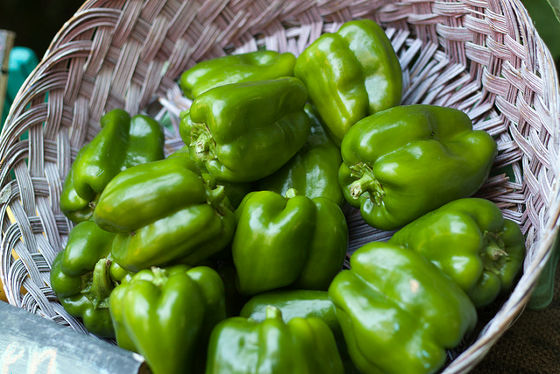It may be thanks to the proteins contained in saliva that you will be able to understand the 'taste of adults' such as coffee and sawma's crawlers

By Cliff Kimura
There are not many people who "love bitter foods" in this world, but on the other hand, the saury bought and the black spot (= cotton) of Sazae, and also "bitter" such as bitter chocolate, coffee, beer etc. Many people will become captive after becoming an adult. As you can see, the taste gradually become familiar and even love it, even if you are not good at first, is called Acquired taste in English and it is expressed as " adult taste " in Japanese. Recent studies have revealed that Acquired taste may be caused by changes in the components of proteins contained in saliva.
SPIT Lab Finds How Saliva Shapes Taste | Inside Science
https://www.insidescience.org/news/spit-lab-finds-how-saliva-shapes-taste
It is a subject of research even in the field of biology that unfamiliar people become like the taste that should not be considered delicious originally. Mr. Cordelia Lanning, a perceptual scientist at Purdue University, is also involved in research in that field and has been investigating whether there are biological factors behind the changing tastes of people's taste. Laboratory belonging to Mr. Lanning " SPIT Lab (Saliva, Perception, Ingestion, and Tongues Laboratory)" says that something will change in human saliva by continuing exposure to bitterness over a long period of time I have made a hypothesis.
Saliva is not only responsible for keeping the mouth moist, it also has the role of adding a compound to help digest the caught food in the mouth. And the results of this study revealed that saliva also contains proteins that alter the taste of the food that human beings feel, and even molecules that convey the fragrance of food to the nose.
Until now, mouse experiments have revealed that saliva components change due to bitter foods, but Mr. Lanning, who hypothesized that the same thing should happen even for humans, had 64 subjects Participated in the experiment. Subjects were given chocolate almond milk containing polyphenols with bitterness three times a day in the second week after being taken a meal that completely shuts out bitter foods and drinks over a week. At the same time, the saliva of the subject was collected and the investigation of the component change of the protein and the change in the evaluation on the taste were recorded.

By tracy benjamin
As a result, the research team succeeded in finding that the composition of the saliva of the subject has changed since it was given chocolate almond milk. Particularly remarkable was seen to be an increase in protein with the function of capturing the bitter ingredients contained in polyphenols and confining bitterness. Also, as the protein increased, the item "bitter" of the evaluation of the taste of chocolate almond milk weakened.
The result is that the mechanism that Ranning is suspected of being "feedback loop", that is, protein of anti-bitter component contained in saliva so that more bitter things are eaten, will be more delicious even for the same thing It is considered to indicate that you are working. Mr. Lann said, "Many people love bitter dark chocolate and sweet tea and love body wines like red wines like cabernet.The results of this study show that people are I think that it is part of the reason why there are differences in likes and dislikes. "
Since the experiment conducted this time was short, the research team says it is necessary to conduct further investigation to see how long this effect lasts. Also, when using milk instead of almond milk, it is also revealing an interesting fact that similar phenomenon could not be seen. This means that the protein contained in milk acts on polyphenol bitterness, which is thought to be a human reaction.

By Mika Stetsovski
Paul Breslin, who is studying taste perception and genetics, says, "There is no exception for biological things, there is an evolutionary background there." "Why is it because of that? "There is a chemical question that exists or what is its function?" Stating that changes in the way people feel bitterness change not only from health and aesthetic but also from the viewpoint of evolution of living things I pointed out. It is believed that there is an evolutionary background that human nature to avoid bitter foods has become disliked by bitter to protect themselves from toxic plants.
While Dr. Helen Hopper, a food scientist at Penn State University of Pennsylvania State University, knew that the perception of taste changed as it got used to food, the background was " It is a relatively new discovery that there is a biological factor of "the ingredient changes" and states that it may influence a wide range of research in the future.
As further research progresses, proteins found from saliva components will be used as "food additives" to be used in combination with food ingredients such as leafy vegetables that are hated because of bitterness while being healthy maybe.

By Tim Sackton
Related Posts:
in Science, Posted by darkhorse_log







